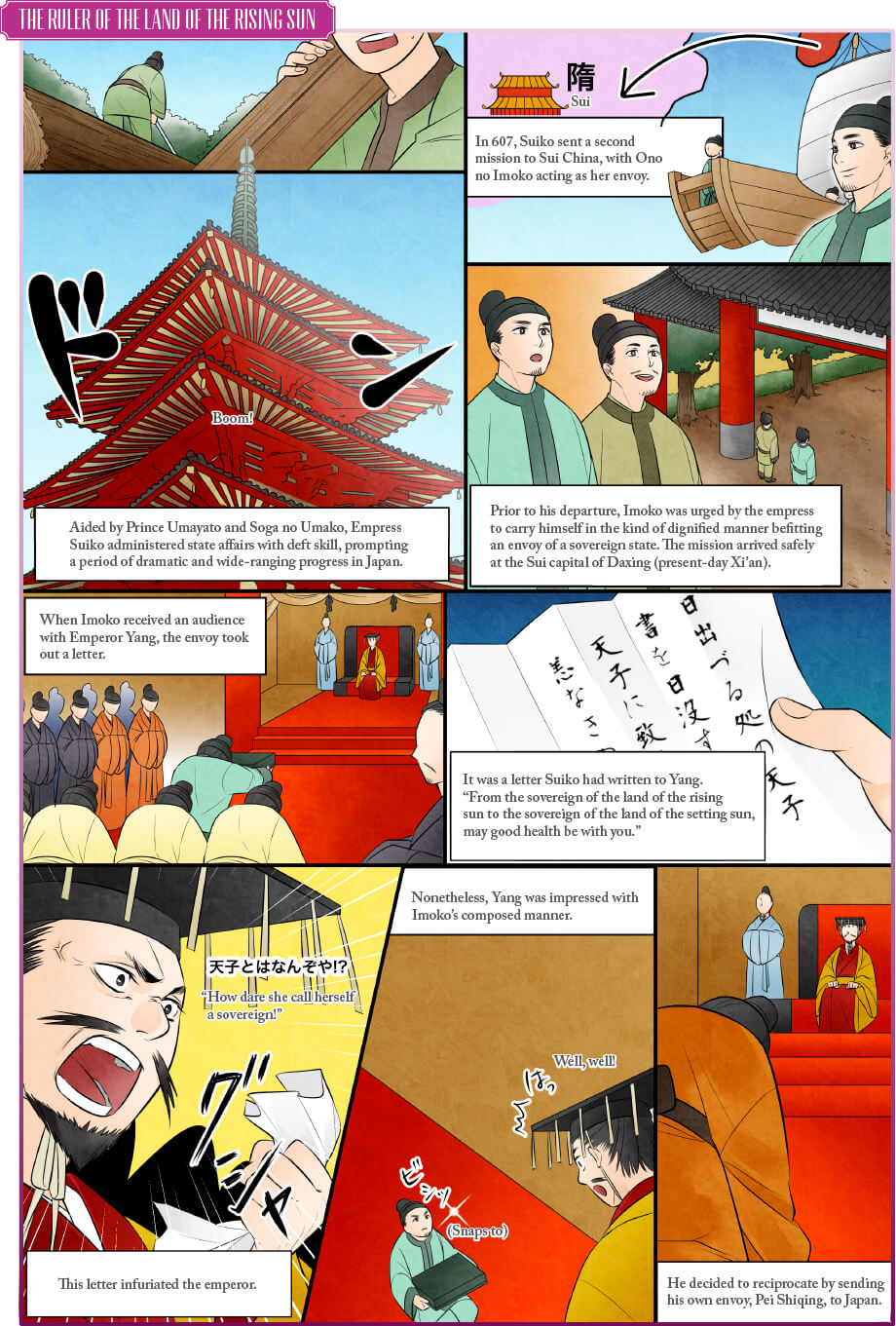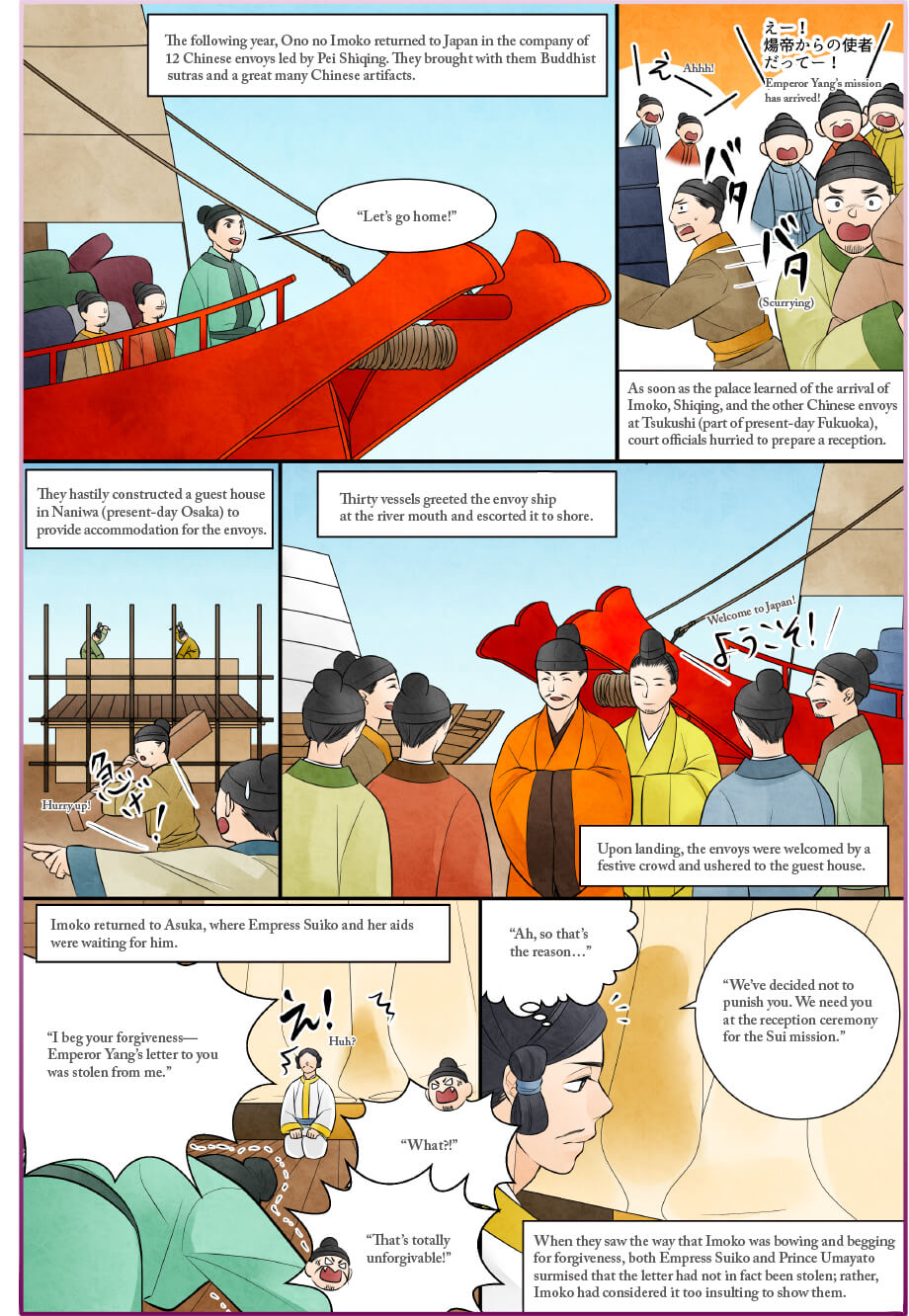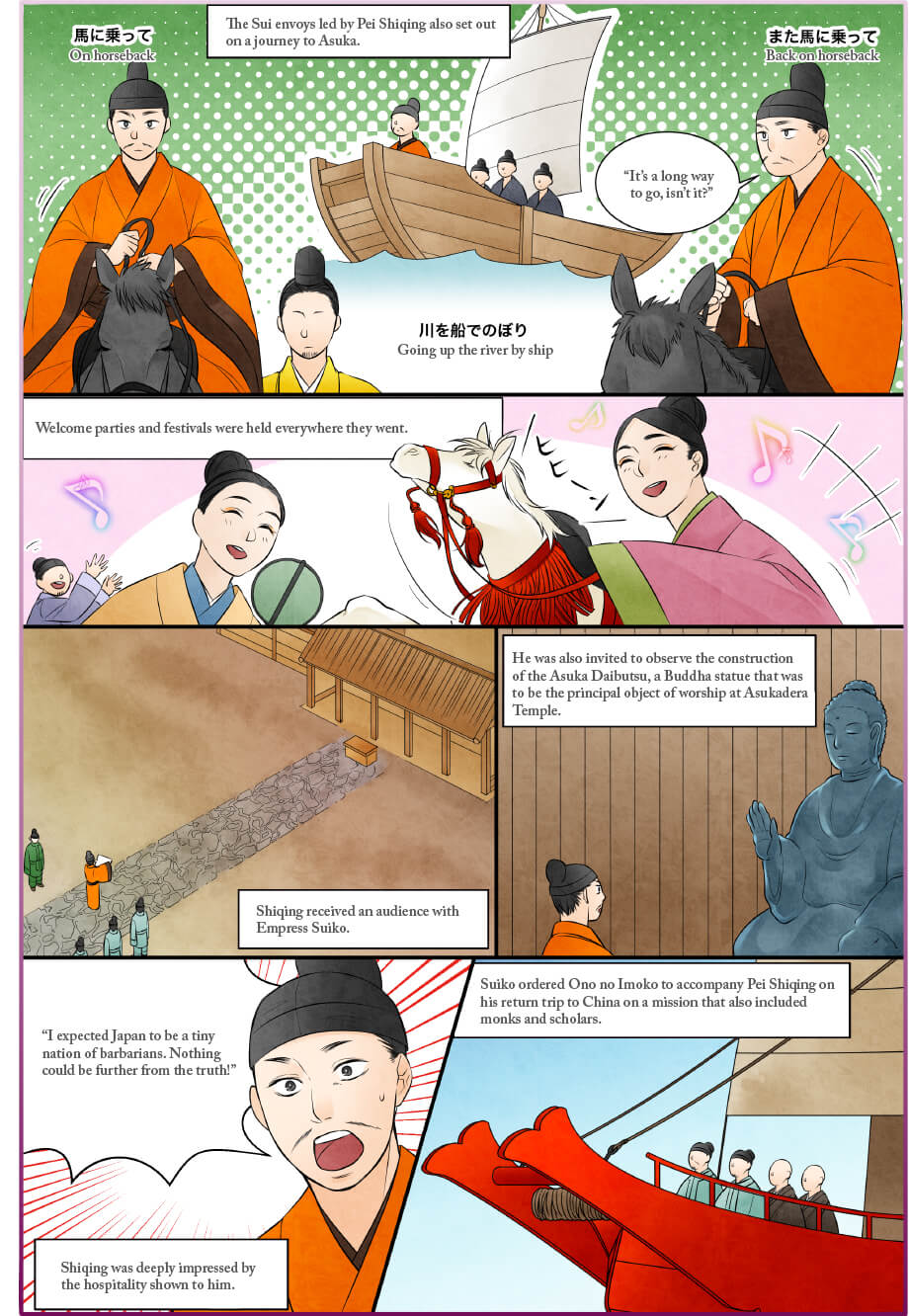Japan progresses under Empress Suiko’s astute and pragmatic reign
Emperor Yang enraged by self-proclaimed sovereign
When the envoy Ono no Imoko visited Sui China in 607, he presented a letter from Empress Suiko to Emperor Yang. In that letter, Suiko implied that she and Yang were sovereigns of equal stature, which infuriated the emperor. He considered Japan a small, backward nation, and he denounced the letter as “barbaric”. Even so, he had no wish to antagonize Japan at a time when his own country was about to wage war against the Goguryeo kingdom. Yang therefore decided to send his envoy Pei Shiqing to Japan—a decision partly influenced by the fact that the Korean kingdoms of Baekje and Silla had already forged close diplomatic ties with Japan. The emperor’s recognition of Japan as a sovereign state paved the way for Japan to establish equal-footed relations with China.
Missions bring back Buddhism and modern Chinese culture
The main purpose of the China missions conducted by Imoko and others was to gather Buddhist teachings and sutras, along with other books and cultural artifacts, and bring them back to Japan. On his return trip to China, Shiqing was accompanied by Imoko and a bevy of scholars and monks whose number included Takamuko no Kuromaro, Minabuchi no Shoan, and Min. During their missions, the visitors studied the Sui dynasty’s centralized government system, its legal system, and its taxation system, and they proceeded to import these systems to Japan. Also, by gathering up-to-date information about events on the Korean Peninsula, the imperial court was able to make a more precise strategic analysis of the political situation there.



